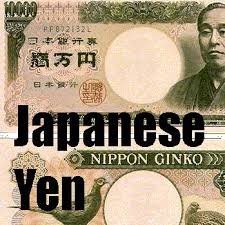By Monami Yui and Lucy Meakin - Oct 12, 2012 11:33 AM GMT+0400
 Japan’s currency slid against all of 16 major peers track by Bloomberg before data today that analysts said will show U.S. consumer confidence was near the strongest since May. The euro headed for a weekly drop against the dollar before figures that may show European industrial production shrank in August. Singapore’s dollar rose after the city state’s monetary authority kept policy unchanged.
Japan’s currency slid against all of 16 major peers track by Bloomberg before data today that analysts said will show U.S. consumer confidence was near the strongest since May. The euro headed for a weekly drop against the dollar before figures that may show European industrial production shrank in August. Singapore’s dollar rose after the city state’s monetary authority kept policy unchanged.
The yen weakened for a second day against the euro as signs that the U.S. economy is stabilizing curbed demand for the safest assets.
“There are certainly some signs of improvement in terms of U.S. data,” said Robert Rennie, chief currency strategist at Westpac Banking Corp. (WBC) in Sydney. “Market sentiment is pretty stable at the moment.”
The yen weakened 0.5 percent to 101.77 per euro as of 8:32 a.m. London time. It slipped 0.2 percent to 78.46 per dollar. The 17-nation euro strengthened 0.4 percent to $1.2974, still headed for a 0.5 percent decline this week.
The MSCI Asia Pacific Index (MXAP) of shares rose for the first time in five days, climbing 0.4 percent.
The Thomson Reuters/University of Michigan sentiment index was at 78 in October, according to the median forecast of economists in a Bloomberg News survey before a preliminary reading of the U.S. confidence measure is released today. That would be little changed from September’s final reading of 78.3.
Jobless Claims
Labor Department figures yesterday showed initial applications for jobless benefits in the world’s largest economy fell 30,000 to 339,000 in the week ended Oct. 6, the fewest in more than four years.
The yen touched 77.95 per dollar yesterday, the strongest level since Oct. 1. The Japanese currency has appreciated 3.7 percent over the past six months, the best performance among the 10 developed-nation currencies tracked by Bloomberg Correlation- Weighted Indexes. The euro fell 1.9 percent and the dollar rose 0.2 percent in the same period.
Japan’s Finance Minister Koriki Jojima said yesterday he told his Group-of-Seven counterparts that the strength of the yen is hurting the nation’s economy and that countries should cooperate on foreign exchange if necessary. A stronger yen makes Japanese products pricier overseas and erodes domestic exporters’ earnings when repatriated.
Singapore Policy
Singapore’s dollar climbed against all of its 16 major counterparts. The nation’s central bank unexpectedly announced today that it would leave monetary policy unchanged, as inflation risks trump worries over a shrinking economy.
“This policy stance is assessed to be appropriate in containing inflationary pressures and keeping the economy on a path of restructuring towards sustainable growth,” the Monetary Authority of Singapore said today in a statement following its semi-annual exchange-rate review. There will be no change to the slope and width of the local currency’s trading band that the MAS uses as its main policy tool, the bank said. The level at which it is centered will also remain unchanged, the MAS said.
The Singapore dollar rose 0.5 percent to S$1.2216 versus its U.S. counterpart. It has advanced 6.2 percent this year, the best performance after the Mexican peso among the greenback’s 16 major counterparts.
Industrial Production
Industrial output in the euro area dropped 0.4 percent in August from July, when it gained a revised 0.5 percent, a Bloomberg poll of economists showed. The European Union’s statistics office is scheduled to release the figures today.
Standard & Poor’s this week downgraded Spain to BBB-, one level above junk, adding to pressure on the debt-saddled nation’s government to seek a sovereign bailout. The move would make it possible for the European Central Bank to buy Spain’s bonds to contain borrowing costs under a new program to stem the euro region’s debt crisis.
Spanish 10-year bonds yielded 5.74 percent today. The rate has dropped from the euro-era record of 7.75 percent reached in July to as low as 5.55 percent after ECB President Mario Draghi said the central bank is ready to do “whatever it takes” to preserve the euro.
While the ECB unveiled an unlimited debt-purchase program on Sept. 6, Spain’s Prime Minister Mariano Rajoy has held off on a decision about whether to request aid, a condition the ECB insists on. EU leaders will hold a two-day summit in Brussels starting Oct. 18.
“There is some buying of the euro as investors speculated the S&P downgrade may hasten Spain’s request for a bailout,” said Noriaki Murao, New York-based managing director of the marketing group at the Bank of Tokyo-Mitsubishi UFJ Ltd., a unit of Japan’s biggest financial group by market value. “The markets will be watching if any progress is made at the EU summit on both the Spanish and Greek situations.”
To contact the reporters on this story: Monami Yui in Tokyo at myui1@bloomberg.net;
Lucy Meakin in London at lmeakin1@bloomberg.net.
To contact the editor responsible for this story: Paul Dobson at pdobson2@bloomberg.net.